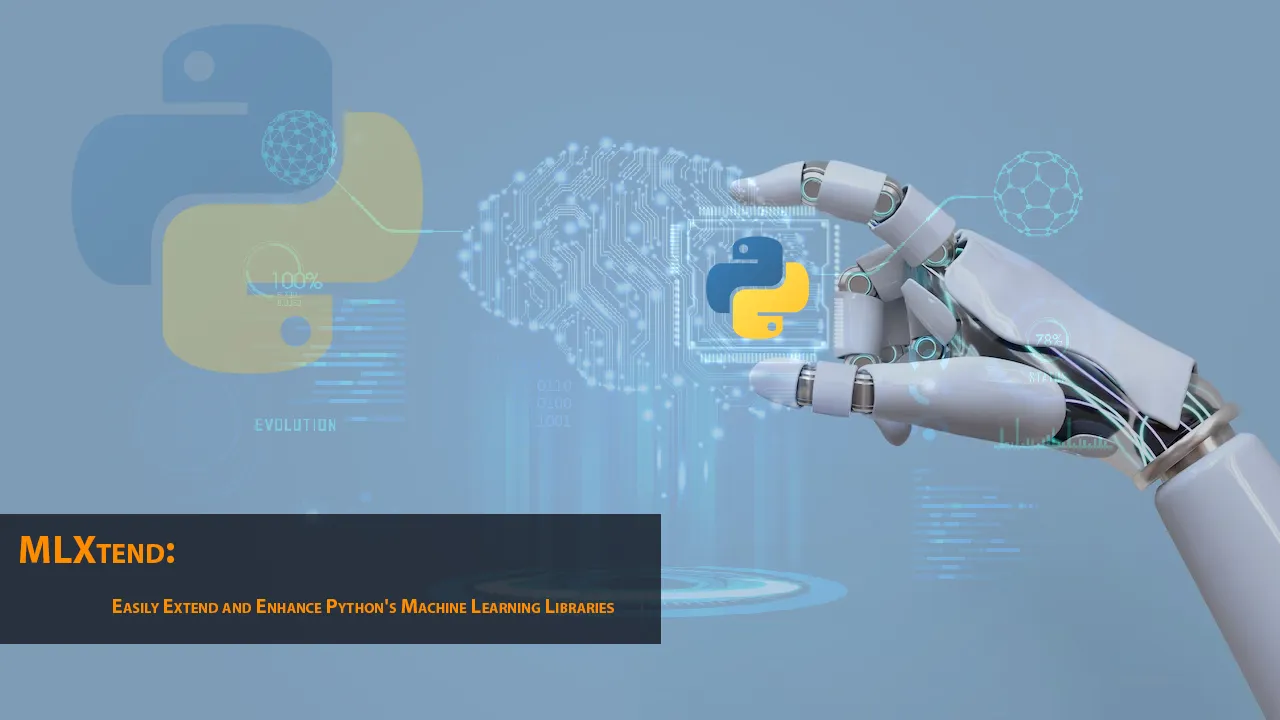MLXtend: Easily Extend and Enhance Python's Machine Learning Libraries
Mlxtend (machine learning extensions) is a Python library of useful tools for the day-to-day data science tasks.
Sebastian Raschka 2014-2023
Installing mlxtend
PyPI
To install mlxtend, just execute
pip install mlxtend
Alternatively, you could download the package manually from the Python Package Index https://pypi.python.org/pypi/mlxtend, unzip it, navigate into the package, and use the command:
python setup.py install
Conda
If you use conda, to install mlxtend just execute
conda install -c conda-forge mlxtend
Dev Version
The mlxtend version on PyPI may always be one step behind; you can install the latest development version from the GitHub repository by executing
pip install git+git://github.com/rasbt/mlxtend.git#egg=mlxtend
Or, you can fork the GitHub repository from https://github.com/rasbt/mlxtend and install mlxtend from your local drive via
python setup.py installExamples
import numpy as np
import matplotlib.pyplot as plt
import matplotlib.gridspec as gridspec
import itertools
from sklearn.linear_model import LogisticRegression
from sklearn.svm import SVC
from sklearn.ensemble import RandomForestClassifier
from mlxtend.classifier import EnsembleVoteClassifier
from mlxtend.data import iris_data
from mlxtend.plotting import plot_decision_regions
# Initializing Classifiers
clf1 = LogisticRegression(random_state=0)
clf2 = RandomForestClassifier(random_state=0)
clf3 = SVC(random_state=0, probability=True)
eclf = EnsembleVoteClassifier(clfs=[clf1, clf2, clf3], weights=[2, 1, 1], voting='soft')
# Loading some example data
X, y = iris_data()
X = X[:,[0, 2]]
# Plotting Decision Regions
gs = gridspec.GridSpec(2, 2)
fig = plt.figure(figsize=(10, 8))
for clf, lab, grd in zip([clf1, clf2, clf3, eclf],
['Logistic Regression', 'Random Forest', 'RBF kernel SVM', 'Ensemble'],
itertools.product([0, 1], repeat=2)):
clf.fit(X, y)
ax = plt.subplot(gs[grd[0], grd[1]])
fig = plot_decision_regions(X=X, y=y, clf=clf, legend=2)
plt.title(lab)
plt.show()

If you use mlxtend as part of your workflow in a scientific publication, please consider citing the mlxtend repository with the following DOI:
@article{raschkas_2018_mlxtend,
author = {Sebastian Raschka},
title = {MLxtend: Providing machine learning and data science
utilities and extensions to Python’s
scientific computing stack},
journal = {The Journal of Open Source Software},
volume = {3},
number = {24},
month = apr,
year = 2018,
publisher = {The Open Journal},
doi = {10.21105/joss.00638},
url = {https://joss.theoj.org/papers/10.21105/joss.00638}
}
- Raschka, Sebastian (2018) MLxtend: Providing machine learning and data science utilities and extensions to Python's scientific computing stack. J Open Source Softw 3(24).
Contact
The best way to ask questions is via the GitHub Discussions channel. In case you encounter usage bugs, please don't hesitate to use the GitHub's issue tracker directly.
Links
- Documentation: https://rasbt.github.io/mlxtend
- PyPI: https://pypi.python.org/pypi/mlxtend
- Changelog: https://rasbt.github.io/mlxtend/CHANGELOG
- Contributing: https://rasbt.github.io/mlxtend/CONTRIBUTING
- Questions? Check out the GitHub Discussions board
Download Details:
Author: rasbt
Source Code: https://github.com/rasbt/mlxtend
License: View license
